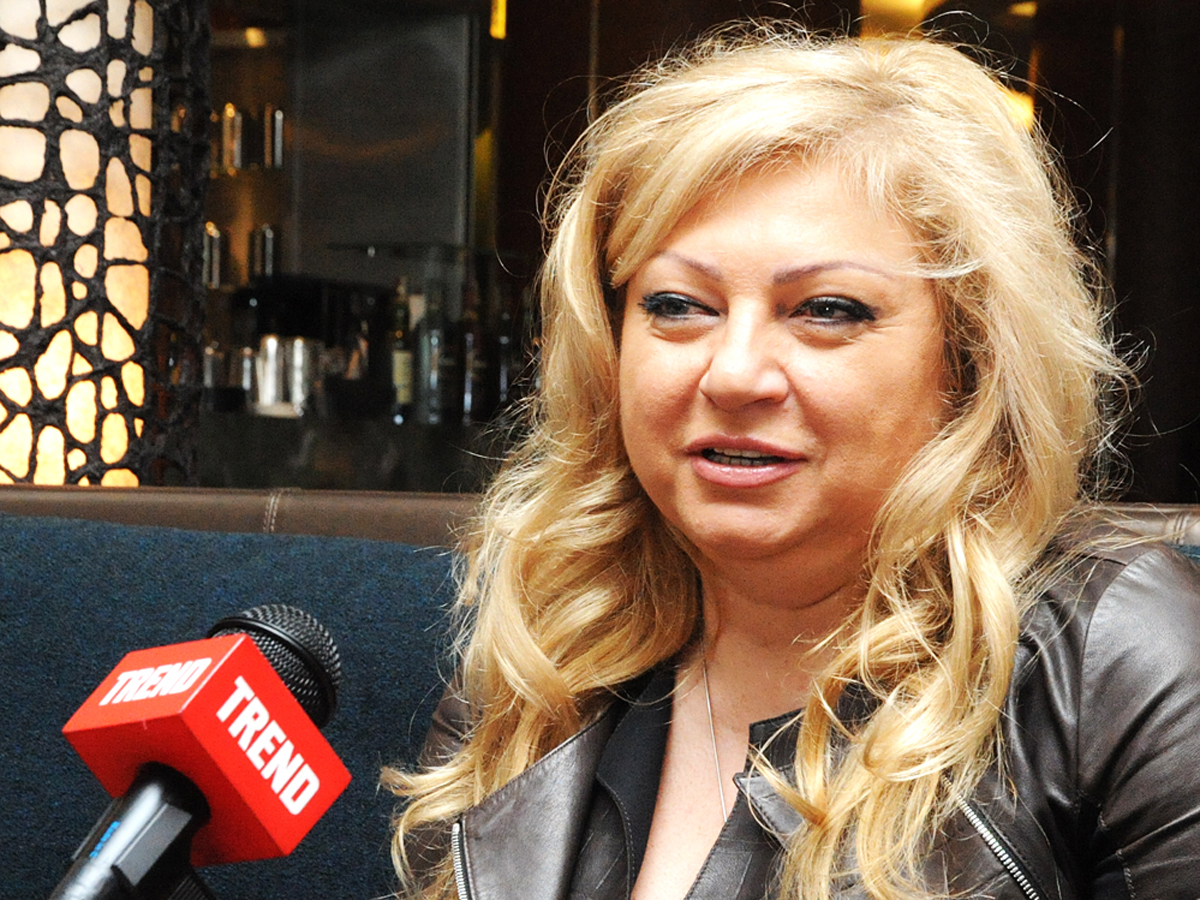Baku, Azerbaijan, Apr. 8
By Anakhanum Khidayatova - Trend:
It is needed to create an international tribunal on the genocide in Khojaly, to bring those responsible for this tragedy to justice, Aurelia Grigoriu, Moldova's parliamentary advocate (ombudsman), told Trend on Apr. 8.
Grigoriu, who is on a visit to Baku, made the remarks while commenting on the fact that Armenia still ignores the genocide of Azerbaijanis and the Khojaly genocide, continuing its propaganda of the false genocide of Armenians.
"I believe it is needed to create a special international tribunal to investigate the genocide in Khojaly, as we well know the names of the criminals, and they themselves didn't hide this," she said. "Now they are trying to remove this information, so that it doesn't serve as evidence in the court. But the Azerbaijani Prosecutor General's Office has gathered enough evidence and testimony of eyewitnesses, who directly experienced those events."
Grigoriu said it is necessary to create such a tribunal soon, as the witnesses of those events are still alive.
"Why did Armenians raise the issue of the "Armenian genocide" much later than it supposedly took place? Because there are no evidences, historical facts, records, documents, journalist testimonies," she said, adding, "Genocide is a crime against humanity, and every crime should be considered by the juridical instance."
Grigoriu further said the recognition or non-recognition of genocide by this or that country is only an intermediate step.
"Speaking of the "Armenian genocide", we can only talk about our attitude directly to this information, rather than the fact of a crime, as there are no evidences of those events," she said.
"We know that Turkey's archives are open, historians are working, and the information they found in the archives confirms only that no genocide took place, and on the contrary, Armenians committed dishonorable acts against the Turkish people."
Grigoriu said that the information used by Armenian side to present the Armenian people as long-suffering people and thereby get some dividends, is most probably related to some economic issues.
"This is while Azerbaijan has all evidences regarding the Khojaly genocide and it is a great advantage that many of the witnesses are still alive," she said.
"There should be made haste in this issue, since Armenians are great falsifiers, they juggle with evidences, documents and it will be more difficult to prove this when there will be no living witnesses," Grigoriu added.
Azerbaijani government deals with this issue consistently, according to Grigoriu.
"First, it is necessary to inform the international community about this crime," she said. "The opinion of all member states is taken into account when creating the international UN tribunal - they should vote for the creation of this tribunal."
Grigoriu added that in order to achieve the support of these countries for the creation of such a tribunal, they need to know that this crime was really committed and indeed there are people who can and should be brought to trial.
Grigoriu added that Armenians continue to persecute her "if not openly, then indirectly."
"This is a permanent condition. They do not persecute me openly, do not call, and do not threaten," she said. "However, recently, Armenian media published the remarks by the chairman of the Moldavian-Armenian community about that Armenians continue to watch how I support Azerbaijan, hinting that they will surely find a way to get square with me. I constantly live in this condition."
The conflict between the two South Caucasus countries began in 1988 when Armenia made territorial claims against Azerbaijan. As a result of the ensuing war, in 1992 Armenian armed forces occupied 20 percent of Azerbaijan, including the Nagorno-Karabakh region and seven surrounding districts.
The two countries signed a ceasefire agreement in 1994. The co-chairs of the OSCE Minsk Group, Russia, France and the US are currently holding peace negotiations.
Armenia has not yet implemented the UN Security Council's four resolutions on the liberation of the Nagorno-Karabakh and the surrounding regions.
---
Follow the author on Twitter: @Anahanum






